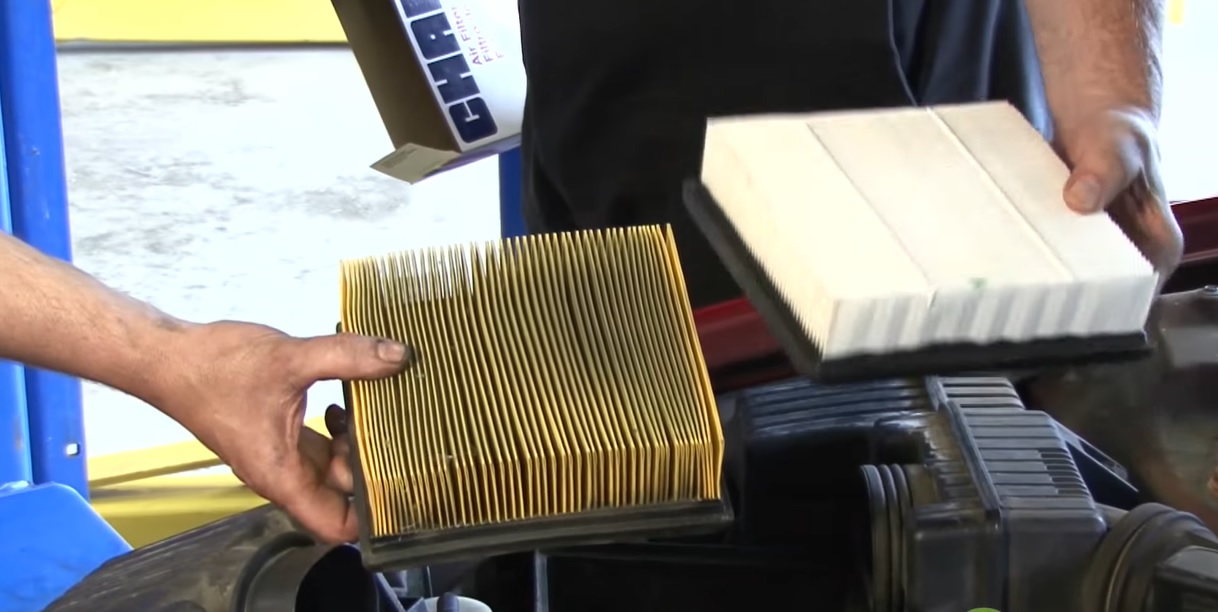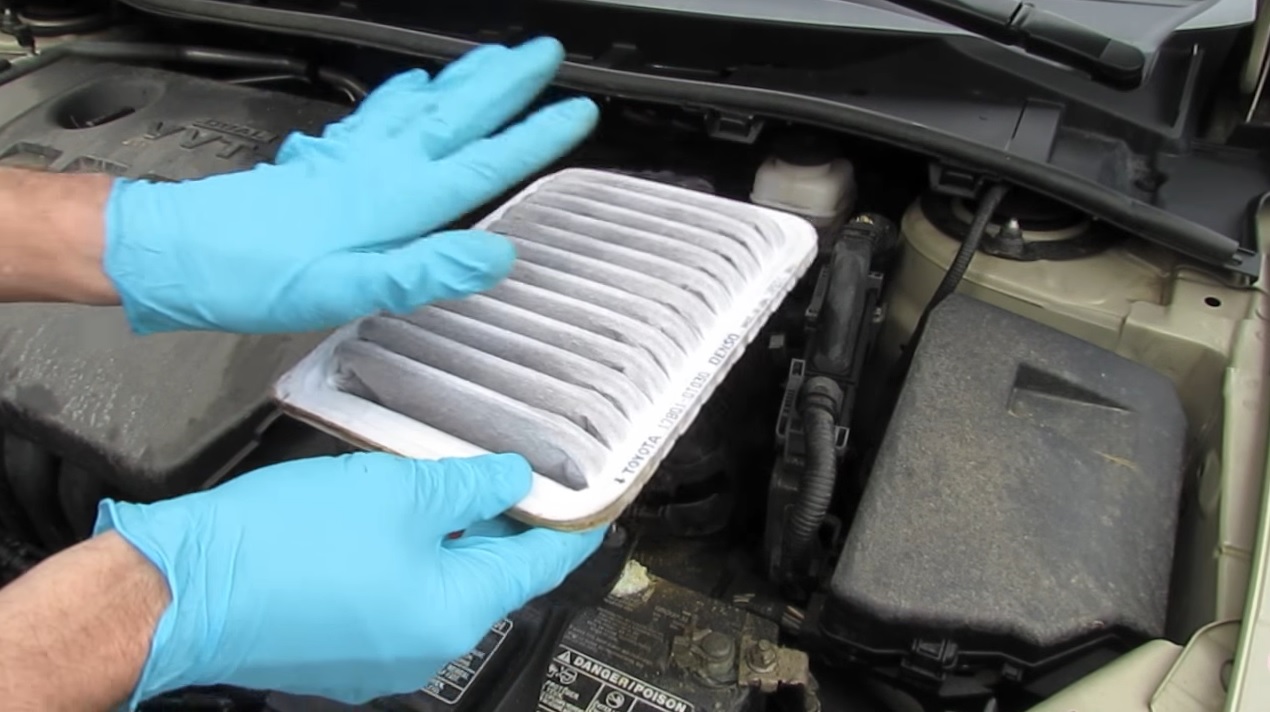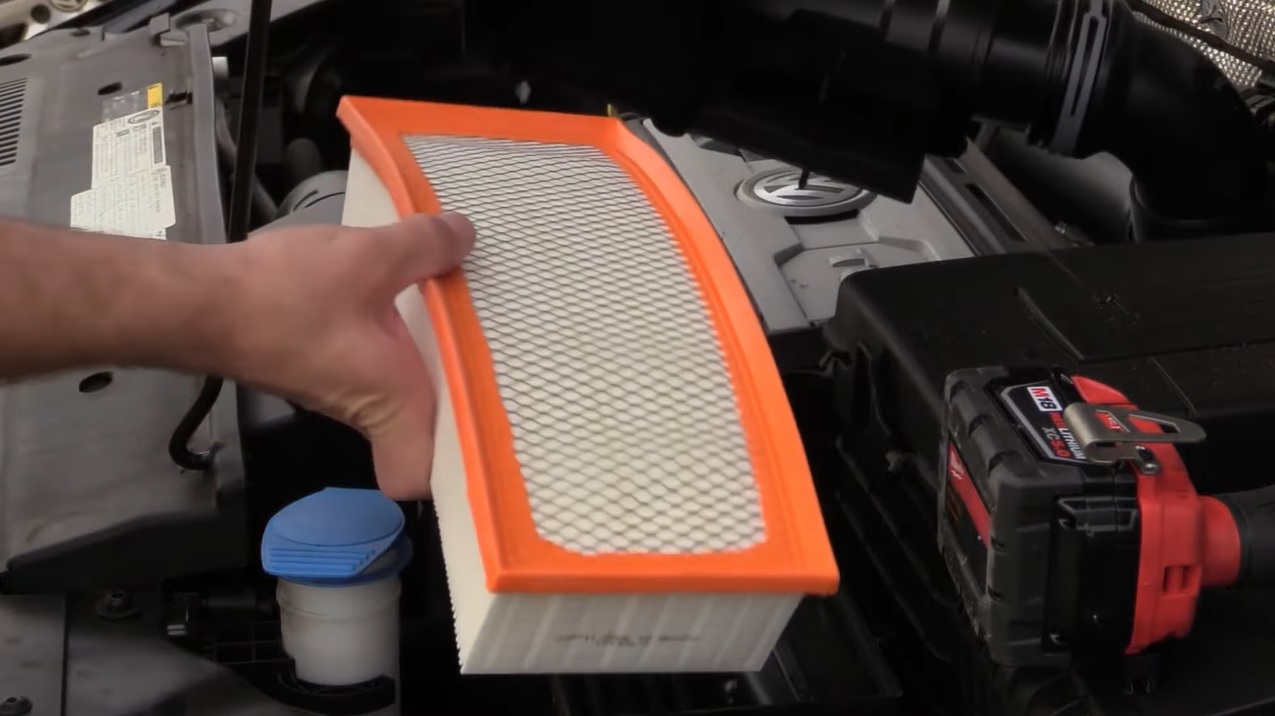
Car maintenance and use can be very expensive. Car parts, accessories, and even gas prices are gradually increasing. One thing we can expect from our cars is that they will give us proper gas mileage. But, sometimes, the car may not act accordingly. Then we start to wonder, does an air filter affect gas mileage?
There was a time when people wanted to buy cars that have powerful engines. Thus, fuel efficiency was low. As of now, the world is trying to go green. That’s why people are opting for cars that have efficient engines.
Engine efficiency means to have good fuel economy. One of the reasons why your car may not be giving you the expected mileage is because your car engine needs the air filter to be replaced. It’s a fact that a frequently serviced car will be 15% more fuel efficient than any other car.
How Does Air Filter Affect Gas Mileage?
Now that you know a dirty air filter can cause your car to have a bad fuel economy, the next question that comes to mind is how this happens. The car engine that we have is called a combustion engine.
The basic of the combustion engine is that it burns the fuel to create hot air which runs the entire mechanism of the engine. To burn the fuel, the engine needs enough air. So, if you are pushing your engine to generate power, it will evidently try to take in air as much as it can.
Now, imagine you’re having a drink with a straw. One of your friends is pinching the straw thus, the liquid flow is interrupted. The same thing happens in the case of a car. Dirty and obstructed air filters can interrupt the usual flow of air to the engine.
This causes the engine to get lesser air to burn the fuel. So, the engine is forced to pressurize itself more. As a result, the engine may burn and waste more fuel but generate less power, ultimately resulting in bad fuel economy.
Why Your Fuel Economy is Bad?

To get the maximum fuel economy from a car, there are a few regular services that can be done. But you need to understand all the factors of fuel economy first. These factors individually play their role in giving your car the mileage it deserves. Let’s find out how mileage can be affected.
- Traffic
Most car enthusiasts will agree that during traffic, cars lose fuel more than while on the run. If you keep your engine running during a traffic signal to keep the AC working, it will most certainly cause your car to burn more fuel.
So, to determine your car’s fuel economy, you need to consider the city or locality you’re in. Because in a city where traffic is low, your fuel economy will be high. Vice versa for cities with higher traffic congestion.
- Wrong Tire Pressure
Tire pressure plays an important role in maintaining good fuel economy. Car tires are expected to have symmetrical tire pressure which helps the car to have a smooth ride. If the tire pressures are not correct, the fuel economy will be hampered.
- Damaged Spark Plugs and Fuel Injectors
Spark plugs are responsible for initiating the spark for the combustion engine of your car. If the spark plug misfires or is in poor condition to get the engine started, it will most certainly result in the engine requiring more fuel to function.
The fuel injectors are responsible for injecting fuel into the car engine. If the fuel injectors are not in proper working condition, they will send more than necessary fuel to the engine. As a result, the car will lose fuel unnecessarily.
- Wrong Engine Oil
After fuel, the most common change required is the engine oil. Engine oil needs to be changed every 3000 miles or 6 months considering whichever comes first. The older the car gets, the earlier the engine oil needs to be changed.
If the engine oil is not suitable for the engine, it may result in the consumption of extra fuel. Good engine oil can ensure that the fuel economy is up by at least 12%.
How to Maintain a Good Fuel Economy?
Understanding the factors that control fuel economy will lead to better management of the car. Let’s take nature for example. If you keep on nurturing nature, it will keep on giving you. It is the same philosophy in terms of cars.
To get the best output from your car, you have to care about it. The way to show care for your car is not only to make it look nice on the outside. You have to make sure that the mechanism under that shiny polished exterior is functioning properly as well.
Nobody wants a car that looks nice on the outside but spits while anyone goes for ignition. So, maintenance is critically important for a car. Not just for good fuel economy but also for better longevity.
Regular Fitness Check
There is a standard frequency of when you should get your car checked for fitness. Depending on the usage of the car, it should be sent for a fitness check every month or 3/6 months.
Air Filter Change/Clean
The air filter should be cleaned at least once every 90 days and changed once every year. This frequency is set by the standard of 1000 miles per month of usage. If your car is used more frequently than this, it should be cleaned and changed more often.
Engine Oil Change
Another must-do is to change the engine oil every 3000 miles. This depends on the usage of the car as well. As per month usage is standardized at 1000 miles, this means engine oil change should occur every 3 months. But if 3000 miles come within fewer days, engine oil should be changed accordingly.
How to Tell if an Air Filter is Dirty/Needs to be Replaced?

It’s not that hard to determine whether the air filter needs to be cleaned or replaced. Before the time of checking arrives, the car will show the following signs
- Sputtering engine
- Engine misfire and weird noises
- Black smoke from the exhaust
- Not enough hp or revolution per minute
- Censor notification
- Low fuel economy
After these signs, the air filter should be checked from the inside. If the air filter appears dirty, it needs cleaning. And if the air filter is too dirty to clean, it should be replaced.
Advantages of Changing/Cleaning Air Filter Regularly
Is better fuel economy the only advantage coming from air filter change? No, it’s not the only one. There are many advantages to changing/ cleaning air filters regularly. Let’s find out more.
1. Environment Friendliness
Dirty air filters cause the car to emit black smoke which contains more harmful chemicals than the usual emissions. Not changing the air filter is one of the main causes to experience black smoke.
So, cleaning the air filters or changing them will ensure that the black smoke emission is to the minimum. Thus, making your car more environmentally friendly and making you feel less guilty.
2. Better Overall Performance
The entire performance capacity of the car depends on how well the engine and its components are functioning. The power generation of the engine depends on how much airflow the engine is receiving. Provided the air filters are dirty, the airflow into the engine will be obstructed.
Thus, generating low power and providing low performance. The difference in this regard is highly visible. After changing the air filter, you will be able to tell how well your car is performing.
3. Engine Longevity
Every car component has a best before or best till date. An engine, if kept in a properly maintained condition, can live up to 500,000 miles. Considering how cars are built these days, it’s a very long time.
As a part of regular maintenance, if the air filter is regularly changed, it allows the car engine to have better longevity.
Final Words
I hope you already have found the answer to the question does air filter affect gas mileage? The answer is it does, greatly. And to avoid using up more gas than required, it is a must to check the air filters regularly.
Not just that, I have covered the other probable reasons that can be blamed for gas mileage, I believe it will be helpful for you. You will be able to monitor the situation of your car and act accordingly.

![Does Air Filter Affect Gas Mileage? – [Expert Solution]](https://automotiveain.com/wp-content/uploads/thumbs_dir/Who-Makes-Gladiator-Tires-qf97zwr21mc2c0007ygd7iy0cons9tka1yt144c9q4.jpg)
![Does Air Filter Affect Gas Mileage? – [Expert Solution]](https://automotiveain.com/wp-content/uploads/thumbs_dir/Rough-country-Cold-Air-Intake-Reviews-qkf0q8fjnnm1m4t4hmmn4x0p8w321oc8v7tpjw71oc.jpg)



